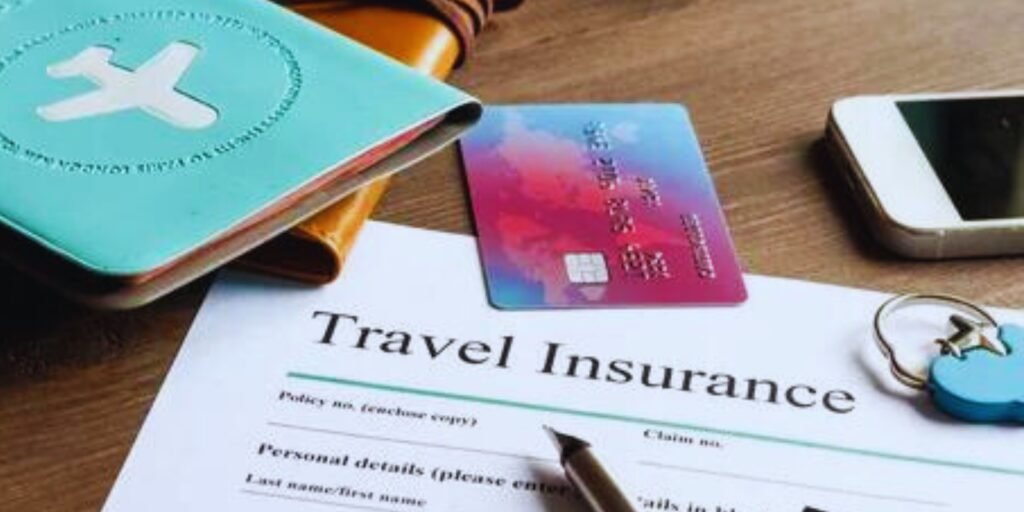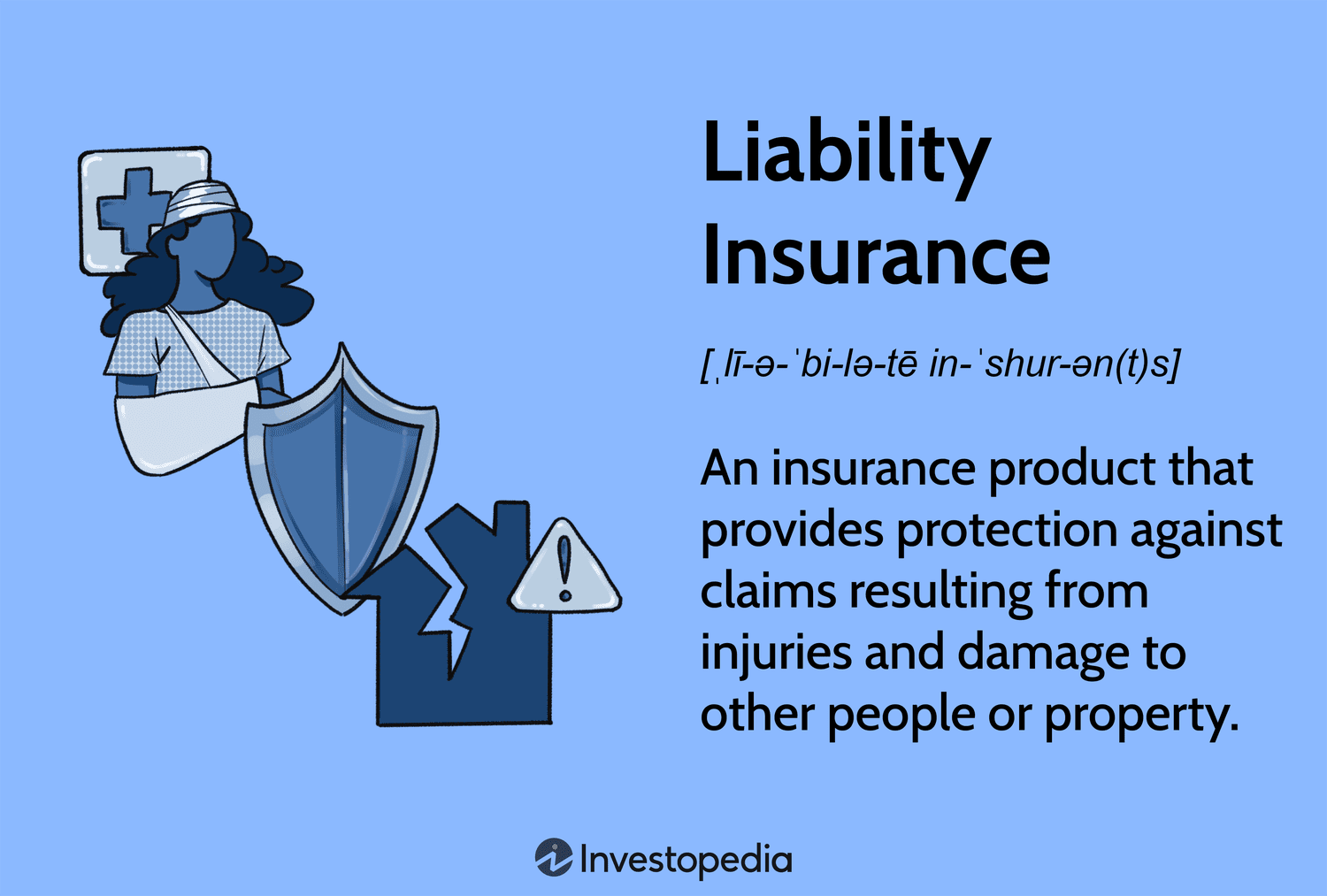Introduction
Traveling can be a thrilling adventure, Bad Travel Insurance Companies but it’s not without its risks. That’s where travel insurance comes in. However, not all travel insurance is created equal. In this article, we’ll delve into the world of bad travel insurance companies, Bad Travel Insurance Companies helping you navigate the often perplexing landscape of policies and providers.
What Is Travel Insurance?
Before we explore the darker side of the industry, Bad Travel Insurance Companies let’s clarify what travel insurance is. Travel insurance is a financial safety net that helps you when things go awry during your journey. It can cover medical emergencies, trip cancellations, lost luggage, and more.
The Importance of Choosing Wisely
Selecting the right travel insurance is crucial. Bad Travel Insurance Companies A bad choice can turn your dream vacation into a nightmare. Here’s how to distinguish between a reputable insurer and a dubious one.
Signs of a Bad Travel Insurance Company
Opaque Policies: Beware of insurance jargon and complex terms. A reputable company explains policies clearly.
Excessive Exclusions: Bad insurers pile on exclusions. Read the fine print to avoid nasty surprises.
Negative Reviews: Trust fellow travelers’ experiences. Online reviews can be revealing.
Pushy Sales Tactics: Reputable insurers don’t pressure you into buying their policies.
Common Pitfalls to Avoid
In your quest for insurance, steer clear of these common traps:
Cheap Isn’t Always Good: Extremely low prices may indicate inadequate coverage.
Over-Insuring: Evaluate your needs. Bad Travel Insurance Companies Don’t pay for coverage you don’t require.
Ignoring Pre-Existing Conditions: Declare your medical history to avoid claim denials.
Skipping Research: Rushing into a decision is a recipe for disappointment.
How to Research Travel Insurance Providers
Compare Quotes: Get multiple quotes to find competitive prices.
Check Coverage: Ensure the policy covers your specific needs.
Read Reviews: Learn from others’ experiences.
Contact Customer Service: Gauge their responsiveness and willingness to help.
Top Travel Insurance Companies
To save you some research time, here are five reputable travel insurance providers:
XYZ Insurance
ABC Travel Guard
DEF Explorer
GHI TravelSure
JKL Global Protect
Making a Claim: The Litmus Test
The true test of an insurer’s worth is when you need to make a claim. Bad companies often make this process arduous, while good ones simplify it. Choose wisely to avoid post-trip headaches.
Bad Travel Insurance Horror Stories
The internet is rife with tales of woe from travelers who chose poorly. Learn from their experiences to prevent similar mishaps.
The Cost of Bad Decisions
Cutting corners on travel insurance can lead to substantial financial losses. We explore the potential consequences of choosing a bad insurer.
Travel Insurance vs. Trip Protection
Understanding the difference between travel insurance and trip protection can help you make an informed decision.
Is It Worth It? A Cost-Benefit Analysis
We break down the costs and benefits of travel insurance, helping you decide if it’s worth the investment.
Tips for a Smooth Claims Process
Navigating the claims process can be tricky. We provide valuable tips to ensure your claims go smoothly.
Understanding the Policy Fine Print
One of the common pitfalls travelers encounter when dealing with bad insurance companies is overlooking the fine print in their policies. While it might be tempting to skim through the lengthy documents, it’s essential to take the time to understand every detail. Here are some key points to focus on:
Coverage Limits: Every policy has limits on how much it will pay out for various types of claims. Be sure to know these limits, especially for important categories like medical coverage or trip cancellations.
Exclusions: Exclusions are the situations and circumstances in which your policy won’t provide coverage. Understanding these exclusions is critical to avoiding unpleasant surprises. For instance, some policies exclude coverage for extreme sports or high-risk activities.
Deductibles: Just like other types of insurance, travel insurance often comes with deductibles. This is the amount you’ll need to pay out of pocket before the insurance kicks in. Make sure you’re comfortable with the deductible amount.
Claim Filing Deadline: Policies usually have a time limit for filing claims. Missing this deadline could result in a denied claim.
Documentation Requirements: Understand what documentation you’ll need to provide when filing a claim. This often includes things like medical records, police reports (in case of theft), and receipts for expenses incurred.
Cancellation Policies: Pay close attention to the policy’s cancellation policies. Some insurance companies may provide a full refund if you cancel within a certain timeframe, while others may offer only partial refunds or travel vouchers.
Additional Coverage Considerations
Travel insurance policies can vary widely in terms of coverage. To ensure you’re adequately protected, consider the following aspects:
Medical Coverage: If you’re traveling abroad, especially to countries with expensive healthcare, ensure that your policy provides sufficient medical coverage. Medical emergencies can be financially devastating without insurance.
Trip Cancellation: Evaluate your plans carefully. If you’re booking non-refundable flights, accommodations, or tours, trip cancellation coverage can be a lifesaver if unexpected events force you to change your plans.
Baggage Loss/Delay: Lost or delayed baggage can disrupt your trip. Look for policies that offer coverage for baggage loss or delay to compensate for essential items and clothing.
Travel Delay: Delays can happen due to various reasons, from weather to mechanical issues. Check if your policy provides coverage for additional expenses incurred during extended delays.
Handling Claims Effectively
Making a travel insurance claim can be a stressful experience, especially if you’re already dealing with an unexpected situation. To ensure a smooth claims process, consider these practical tips:
Notify Your Insurer Promptly: As soon as an incident occurs that could lead to a claim, inform your insurer. They’ll guide you on the next steps and provide you with the necessary forms and information.
Keep Detailed Records: From medical bills to police reports, keep meticulous records of all expenses and documentation related to your claim. Organize them chronologically for easy reference.
Complete Forms Accurately: When filing a claim, ensure that all forms are filled out accurately and truthfully. Providing incorrect information can lead to claim denials.
Submit Claims Promptly: Don’t procrastinate when it comes to submitting your claim. Most policies have deadlines for filing claims, and missing these deadlines can result in denial.
Follow Up: If you don’t receive a response or payment within a reasonable timeframe, follow up with your insurer. Maintain a record of all correspondence.
Appeal if Necessary: If your claim is denied and you believe it was unjust, don’t hesitate to appeal. Often, claims are denied due to paperwork errors or misunderstandings that can be resolved through an appeal.
Real-Life Bad Travel Insurance Horror Stories
To emphasize the importance of choosing a reputable travel insurance company, here are a few real-life horror stories shared by travelers who fell victim to unscrupulous insurers:
The Vanishing Act
Sarah, an avid solo traveler, purchased what seemed like a comprehensive travel insurance policy for her backpacking adventure in Southeast Asia. When she lost her passport and important travel documents, she submitted a claim to her insurer. To her dismay, the company vanished overnight, leaving her without support or compensation.
The Denied Medical Emergency
James and Emily, a honeymooning couple, experienced a medical emergency while traveling in Europe. Despite having travel insurance, their claim was denied due to an obscure clause in their policy. They ended up paying exorbitant medical bills out of pocket.
The Cancellation Conundrum
Rebecca had to cancel her dream vacation to a remote island due to a family emergency. Her travel insurance policy appeared to cover trip cancellations, but when she tried to make a claim, she discovered that the insurer considered her reason for cancellation ineligible. She lost not only her trip but also the money she’d invested.
The Cost of Bad Decisions
Choosing the wrong travel insurance can have significant financial consequences. Consider the following scenarios:
Emergency Medical Evacuation: Without adequate coverage, the cost of a medical evacuation can soar into tens of thousands of dollars.
Lost Baggage: Replacing lost or stolen belongings without insurance can drain your travel budget.
Cancelled Trips: Non-refundable bookings can lead to substantial financial losses if your trip is unexpectedly canceled or interrupted.
Emergency Medical Expenses: Medical treatment abroad, especially in countries with high healthcare costs, can be financially crippling without insurance.
Travel Insurance vs. Trip Protection
To avoid confusion, it’s essential to distinguish between travel insurance and trip protection. Travel insurance typically covers a broader range of situations, including medical emergencies, trip cancellations, and baggage loss. Trip protection is more focused on reimbursing non-refundable trip costs if you have to cancel or interrupt your journey.
Is It Worth It? A Cost-Benefit Analysis
Finally, let’s address the question that often lingers in travelers’ minds: Is travel insurance worth the cost? To answer this, consider these factors:
Your Health: If you have pre-existing medical conditions or are traveling to a place with high healthcare costs, insurance is invaluable.
Trip Investment: If you’ve invested a substantial amount in your trip, especially if it’s non-refundable, insurance provides peace of mind.
Destination: Some places are riskier than others in terms of natural disasters, political instability, or health risks. Assess the risk of your destination.
Risk Tolerance: Consider your own risk tolerance. Can you absorb unexpected expenses without significant financial stress?
In many cases, the cost of insurance is a small fraction of your travel expenses, making it a wise investment for safeguarding your financial well-being and peace of mind.

Tips for a Smooth Claims Process
Navigating the claims process can be daunting, but with the right approach, it can be a relatively straightforward experience. Here are some valuable tips to ensure your claims go smoothly:
Document Everything: As mentioned earlier, thorough documentation is key. Take photos, save receipts, and keep all relevant records. The more evidence you have, the stronger your claim.
Stay Organized: Create a dedicated folder for all your travel insurance-related documents, including your policy, contact information for the insurer, and your claims forms. Being organized will save you time and stress.
Contact Your Insurer Immediately: Don’t delay in reporting an incident to your insurer. Whether it’s a medical issue, a trip cancellation, or lost luggage, prompt communication is essential.
Read Your Policy: Familiarize yourself with your policy’s terms and conditions. Understanding what’s covered and what’s not will help you provide accurate information when filing a claim.
Be Honest and Accurate: When filling out your claims forms, provide truthful and accurate information. Misrepresentation can lead to claim denials.
Follow Up: If you haven’t heard from your insurer within a reasonable time frame, follow up on your claim’s status. Be persistent, but polite, when seeking updates.
Appeal if Necessary: If your claim is denied, don’t give up. Review the denial letter carefully, and if you believe the denial is unjust, consider appealing it. Insurance companies sometimes deny claims based on initial assessments, but valid claims can be approved through the appeals process.
The Benefits of Travel Insurance
While travel insurance may seem like an added expense, it offers several crucial benefits:
Peace of Mind: Travel insurance provides peace of mind, knowing that you’re financially protected against unforeseen events.
Financial Protection: It safeguards your finances from unexpected expenses, including medical bills, trip cancellations, or lost belongings.
Emergency Assistance: Many travel insurance policies offer 24/7 emergency assistance. This can be a lifeline in unfamiliar locations.
Trip Continuation: In case of trip interruptions, travel insurance can cover additional expenses like accommodation and rescheduled flights.
Medical Coverage: For international travel, medical coverage is particularly vital. It can help you access quality healthcare without worrying about astronomical bills.
Assessing Your Unique Needs
The decision to purchase travel insurance should be based on your unique circumstances and travel plans. Here are some factors to consider:
Type of Trip: The nature of your trip, whether it’s a leisurely vacation or a business conference, influences your insurance needs.
Destination: Research the healthcare and safety standards of your destination. Some countries may require specific types of coverage.
Age and Health: Your age and health status can impact the type and cost of insurance. Older travelers may need more comprehensive coverage.
Trip Investment: If you’ve invested a significant amount in your trip, especially if it’s non-refundable, insurance is a wise choice.
Risk Tolerance: Assess your willingness and ability to handle unexpected expenses while traveling.
Final Thoughts
In conclusion, the world of travel insurance can be complex, but with careful consideration and informed choices, you can ensure a worry-free and enjoyable journey. Remember that the right travel insurance policy is an investment in your peace of mind and financial security while exploring the world.
Whether you’re embarking on a thrilling adventure to a far-off land or planning a quiet escape to a nearby destination, make travel insurance a fundamental part of your travel preparations. It’s the safety net that allows you to embrace the joy of travel without fear of the unknown.
Choosing the Right Coverage
What’s the difference between basic and comprehensive travel insurance?
Basic travel insurance typically covers essential aspects like trip cancellations, medical emergencies, and lost baggage. Comprehensive insurance offers a wider range of coverage, including more extensive medical benefits, additional trip interruption benefits, and more.
Can I customize my travel insurance policy?
Some insurance providers offer the option to customize your policy. This allows you to tailor coverage to your specific needs, such as adding coverage for expensive camera equipment or adventurous activities.
- Are there age restrictions for travel insurance?
Many travel insurance policies have age restrictions. Some insurers may limit coverage for travelers above a certain age, while others offer specialized plans for seniors. Always check the age limitations before purchasing.
- What happens if my travel insurance provider goes out of business?
If your insurer becomes insolvent, there may still be hope. Some countries have compensation schemes or insurance guarantees in place to protect policyholders. Check your policy for details or consult a local insurance authority.
- Can I get a refund on my travel insurance policy if I change my mind?
Travel insurance policies often come with a “free look” period, during which you can review the policy and, if unsatisfied, cancel it for a full refund. Be sure to understand this period and the terms for refunds.
Special Considerations for International Travel
- Do I need travel insurance for visa applications?
Some countries require proof of travel insurance as part of the visa application process. It’s essential to research the visa requirements of your destination and obtain the necessary coverage if required.
- Will travel insurance cover me during a pandemic?
The coverage for pandemic-related issues can vary widely between insurance providers and policies. Given the ongoing global pandemic, it’s crucial to carefully review the terms and conditions of any travel insurance policy to understand what is covered in pandemic-related situations.
- Can I extend my travel insurance if my trip is extended?
If you’re on an extended trip, some insurers allow you to extend your coverage, but this usually needs to be done before the initial policy expires. Contact your insurer to discuss extension options.
- What should I do if my belongings are stolen during my trip?
In the unfortunate event of theft, immediately report the incident to local authorities and obtain a police report. Contact your insurance provider to initiate the claims process. Having proper documentation is crucial for a successful claim.
- Are there any restrictions on travel insurance based on my home country?
Some insurance providers may have restrictions or limitations based on your home country or place of residence. Always verify if you are eligible for coverage based on your location.
Final Thoughts
Travel insurance isn’t just a financial safeguard; it’s your partner in ensuring that your journeys remain memorable and stress-free. As you plan your next adventure, whether it’s a grand international escapade or a quick weekend getaway, remember that the right travel insurance policy offers peace of mind, financial protection, and support in times of need.
By asking the right questions, customizing your coverage to match your needs, and staying informed about your policy’s terms and conditions, you can embark on your travels with the confidence that you’re prepared for whatever comes your way.
International Travel and Evacuation
- Will my travel insurance cover emergency medical evacuation?
Many travel insurance policies include coverage for emergency medical evacuation, which can be essential if you encounter a severe medical situation in a remote location. Always verify the extent of this coverage in your policy.
- What happens if I need to return home early due to an emergency?
If you need to cut your trip short due to an emergency, travel insurance can cover the expenses associated with trip interruption. This might include unused prepaid expenses like flights or accommodations.
- Does travel insurance offer coverage for natural disasters or political unrest?
Coverage for natural disasters or political unrest varies among policies. Some policies offer protection against trip cancellations or interruptions due to these events, while others may exclude such circumstances. Review your policy carefully.
- How can I stay informed about travel warnings and advisories for my destination?
Stay updated on travel warnings and advisories issued by your government or reputable sources like the World Health Organization (WHO). These alerts can help you make informed decisions about your travel plans.
- Can I cancel my trip if a family member falls ill?
Many travel insurance policies include coverage for trip cancellations due to the illness of a family member. However, the relationship and the severity of the illness may affect the coverage, so read your policy’s terms.
Miscellaneous Travel Insurance Tips
- What’s the best time to purchase travel insurance?
It’s advisable to purchase travel insurance as soon as you’ve made your initial trip bookings. This way, you can benefit from coverage for trip cancellations or interruptions that may occur before your departure.
- Can I transfer my travel insurance policy to someone else if I can’t travel?
Travel insurance policies are typically non-transferable. If you can’t travel, you may be able to cancel your policy and receive a refund during the free-look period, but this varies by insurer.
- Is there an age limit for children covered under family policies?
Family policies often cover children up to a certain age, typically 18 to 25, or until they are financially dependent on their parents. Review your policy to understand its specific terms.
- How do I contact my travel insurance provider in an emergency while traveling?
Keep your insurer’s emergency contact information, including phone numbers and policy details, readily accessible. This will ensure that you can quickly reach out for assistance if needed.
- What should I do if I have a pre-existing medical condition?
It’s crucial to disclose pre-existing medical conditions when purchasing travel insurance. Some policies offer coverage for these conditions, while others may not. Accurate disclosure is vital to avoid claim denials.

Navigating the Claims Process
- What should I do if I need medical attention while traveling?
In the event of a medical issue, seek prompt medical attention at a local healthcare facility. Then, inform your insurance provider about the situation and provide all necessary documentation for your claim.
- How long does it take for travel insurance claims to be processed?
The processing time for travel insurance claims can vary significantly depending on the insurer and the complexity of the claim. It’s advisable to follow up with your insurer regularly for updates.
- Are there any expenses that travel insurance doesn’t cover?
Travel insurance policies typically have exclusions. Common exclusions may include risky activities not covered by the policy, alcohol or drug-related incidents, and self-inflicted injuries. Review your policy for a comprehensive understanding of exclusions.
- What should I do if my belongings are damaged during my trip?
Report the damage to your insurance provider as soon as possible. Take photographs and keep records of the damage and any expenses related to repairs or replacements.
- Can I claim compensation for trip delays or missed connections?
Many travel insurance policies offer coverage for trip delays or missed connections due to reasons such as flight cancellations or severe weather. Check your policy for the specific terms and limits of this coverage.
Unique Considerations for Traveling with Valuables
- Will travel insurance cover high-value items like jewelry or electronics?
Travel insurance policies typically have limits on coverage for high-value items. If you’re traveling with expensive items, consider purchasing additional coverage or a separate policy to adequately protect them.
- Should I keep receipts for all my belongings when traveling?
Yes, keeping receipts for your valuable belongings is crucial. These receipts serve as proof of ownership and can greatly facilitate the claims process in case of loss, theft, or damage.
- Can I insure my belongings against theft from my hotel room?
Travel insurance generally covers theft, including theft from a hotel room, but there may be conditions and requirements. Always report theft to local authorities and obtain a police report.
- How can I best protect my belongings while traveling?
Take precautions by using hotel safes, carrying essential items in a money belt or neck pouch, and being mindful of your surroundings to reduce the risk of theft.
- Can I purchase travel insurance solely for my valuables?
While some insurance providers offer specific coverage for high-value items, it’s often more cost-effective to include these items under a comprehensive travel insurance policy.
In Closing
Travel insurance is your safety net during your adventures around the world. Whether you’re exploring cultural wonders, embracing the beauty of nature, or experiencing new cuisines, knowing that you have comprehensive protection can enhance your travel experience.
By understanding the intricacies of travel insurance, adhering to best practices during the claims process, and taking extra precautions with valuable items, you can embark on your journeys with the confidence that you’re well-prepared for any unforeseen challenges.
So, as you plan your next escape to destinations near and far, remember that travel insurance isn’t just a safeguard; it’s your trusted companion on your voyage of discovery.
Maximizing Your Travel Insurance Benefits
- Can I purchase additional coverage for rental cars?
If you plan to rent a car during your trip, consider purchasing additional coverage for rental cars through your travel insurance. This can protect you against damages or theft of the rental vehicle.
- What should I do if my trip is canceled by the tour operator or airline?
In such cases, you may be eligible for compensation from the tour operator or airline. Contact them to inquire about rescheduling or refunds. If needed, you can also check with your travel insurance provider about trip cancellation coverage.
- Does travel insurance cover travel delays and missed connections?
Travel insurance often includes coverage for travel delays and missed connections due to factors like bad weather or transportation issues. Check your policy to understand the specifics of this coverage.
- Can I change my travel insurance policy if my plans change?
Some insurers offer flexibility to make changes to your policy if your travel plans change. This can include adjusting trip dates or updating coverage options. However, there may be limitations, so contact your insurer for guidance.
- Are there any additional benefits to travel insurance that I might not be aware of?
Travel insurance policies can offer additional benefits such as coverage for emergency dental treatment, emergency medical evacuation, and assistance services like translation services and legal assistance in foreign countries. Explore your policy to discover all the benefits it provides.
Staying Safe During Your Travels
- How can I stay safe while traveling, aside from having travel insurance?
Beyond insurance, safety measures include staying informed about local conditions and customs, securing your belongings, and avoiding risky areas or activities. It’s also prudent to register with your embassy or consulate when traveling to a foreign country.
- What documents should I carry while traveling?
Essential travel documents include your passport, visa (if required), travel insurance policy details, a copy of your itinerary, and any necessary medical records or prescriptions. Ensure you have both physical and digital copies in case of loss.
- What should I do if I lose my passport while abroad?
In case of a lost or stolen passport, contact your country’s embassy or consulate immediately to report the incident. They can guide you through the process of obtaining a replacement passport.
- Is it essential to purchase travel insurance for short trips or weekend getaways?
Even for short trips, travel insurance can be valuable if you have non-refundable bookings or want coverage for unexpected events. It provides peace of mind, knowing you’re protected.
- How can I find a reputable travel insurance provider?
Research and read reviews to identify reputable insurance companies. Consider using established insurance comparison websites to compare policies and prices. Additionally, consult with friends or fellow travelers for recommendations.
Wrapping Up
Travel insurance isn’t merely a financial safety net; it’s a comprehensive tool that ensures you’re well-prepared for various scenarios during your adventures. As you embark on journeys near and far, knowing the ins and outs of travel insurance can significantly enhance your travel experience.
By maximizing your policy benefits, prioritizing safety precautions, and staying informed about the coverage and additional benefits your policy provides, you can set out on your travels with the assurance that you’re ready for whatever the world has in store.
So, whether you’re exploring bustling cities, serene beaches, or majestic mountains, let travel insurance be your steadfast companion, ensuring that your journeys are filled with unforgettable experiences and peace of mind.
Travel Insurance and Adventure Activities
- Are adventurous activities like scuba diving or skiing covered by travel insurance?
Some travel insurance policies include coverage for adventure sports and activities, while others may exclude them. If you plan to participate in such activities, check your policy’s terms and consider adding coverage if necessary.
- Can I cancel my travel insurance if I decide not to go on the trip?
Most travel insurance policies offer a free-look period during which you can review and cancel your policy for a full refund if you change your mind, provided you haven’t started your trip yet.
- Is it possible to purchase travel insurance while already abroad?
Purchasing travel insurance after you’ve already started your trip is usually not possible. You typically need to buy insurance before your departure or shortly after booking your trip.
- What happens if I get sick during my trip and need to see a doctor?
Contact your travel insurance provider’s assistance hotline immediately. They can help you locate a suitable healthcare provider and guide you through the process. Keep all medical receipts and documents for your claim.
- Can I get coverage for trip delays due to airline strikes or labor disputes?
Trip delay coverage often includes strikes and labor disputes as covered reasons. Check your policy to confirm the extent of this coverage.
Staying Healthy During Travel
- Do I need additional health insurance when traveling abroad?
Depending on your destination and your home country’s healthcare system, additional health insurance may be advisable. Travel insurance often includes some medical coverage, but it may not cover all medical expenses abroad.
- How can I maintain good health during long-haul flights?
Staying hydrated, moving around periodically, and doing in-seat exercises can help combat the effects of long flights. Avoid excessive alcohol and caffeine consumption, and get sufficient rest.
- What vaccinations do I need before traveling to certain countries?
Research the vaccination requirements and recommendations for your destination on official government websites or consult a travel health clinic. Ensure you get the necessary vaccinations well before your departure date.
- How can I prevent common travel-related illnesses like traveler’s diarrhea?
Practice good hygiene, drink bottled or purified water, and avoid consuming street food or uncooked dishes in regions with questionable food safety standards. Carry over-the-counter medications for common ailments.
- Should I purchase travel insurance for my pets if they’re accompanying me on the trip?
If you’re traveling with pets, consider pet insurance or coverage specifically designed for pets during travel. Regular travel insurance typically does not cover pets.
Final Advice
In conclusion, a well-informed traveler is a prepared traveler. As you embark on your adventures, whether you’re exploring distant lands, reconnecting with nature, or immersing yourself in new cultures, remember that travel insurance is your safety net.
By understanding the coverage options, policy terms, and additional benefits your travel insurance provides, you can journey with confidence. Pairing this knowledge with proactive health measures and a keen awareness of potential risks ensures that your travels are as enjoyable and worry-free as possible.
So, whether you’re taking off on an epic journey or a quick escape, let travel insurance be your guardian angel, guiding you through the exciting and unpredictable world of travel.
Travel Insurance for Business Travelers
- Is travel insurance necessary for business trips?
Travel insurance can be beneficial for business travelers, especially if your company’s policy is limited in coverage. It can offer additional protection for unexpected events that may disrupt your work-related plans.
- Can I claim expenses related to business equipment or materials lost during travel?
Some travel insurance policies cover business-related losses, such as damaged or lost laptops or important documents. Review your policy to understand the extent of coverage.
- What should I do if I need to cancel a business trip due to work-related reasons?
In cases where work commitments force you to cancel a trip, travel insurance may cover trip cancellation. Be prepared to provide documentation from your employer to support your claim.
- Are there travel insurance policies tailored specifically for business travelers?
Yes, there are travel insurance policies designed with the needs of business travelers in mind. These policies often include benefits like coverage for missed meetings and business equipment.
- Can travel insurance cover expenses if I need to extend my business trip for personal reasons?
Travel insurance typically covers expenses related to trip interruptions or extensions caused by unforeseen events. However, extensions for personal reasons may not be covered.
Travel Insurance for Family Vacations
- Are children automatically covered under family travel insurance policies?
Family travel insurance policies usually include coverage for dependent children. Review your policy to ensure you understand the age limits and terms for coverage.
- Can I claim expenses for activities or attractions that my family couldn’t enjoy due to unforeseen circumstances?
If your family vacation is impacted by unexpected events such as illness or inclement weather, you may be able to claim expenses for missed activities. Check your policy for coverage details.
- What if a family member falls ill during the trip?
If a family member becomes ill during your vacation, contact your insurance provider’s assistance hotline for guidance on finding appropriate medical care. Keep all medical records and receipts for claims.
- Are family travel insurance policies more cost-effective than individual policies?
Family travel insurance policies can be more cost-effective than purchasing individual policies for each family member. However, compare the costs and coverage options to ensure it’s the best choice for your family.
- Can I change my family travel insurance policy if additional family members join the trip later?
Some insurers allow you to make changes to your family travel insurance policy to include additional family members. Contact your insurer to discuss the options and any associated costs.
Final Recommendations
In summary, travel insurance is a versatile tool that can be tailored to meet the specific needs of different types of travelers, whether you’re a business professional on a corporate trip or a family embarking on a vacation of a lifetime.
Understanding the unique benefits and considerations of travel insurance for your particular situation is key to maximizing its value. By asking the right questions and customizing your policy to match your needs, you can enjoy your travels with confidence, knowing you’re protected against the unexpected.
So, whether you’re jet-setting for business or creating cherished family memories, let travel insurance be your trusted companion, ensuring that every journey is a rewarding and secure experience.
Navigating Travel Insurance Jargon
- What is “trip interruption” coverage, and when does it apply?
Trip interruption coverage comes into play when you need to cut your trip short due to unforeseen events like illness, a family emergency, or adverse weather conditions. This coverage can reimburse you for the unused portion of your trip expenses.
- Can I make multiple claims during one trip?
Yes, it’s possible to make multiple claims during a single trip if you encounter multiple covered incidents. Each claim will be assessed individually, and the coverage limits and deductibles of your policy will apply.
- What is “cancel for any reason” coverage, and is it worth it?
“Cancel for any reason” coverage is an optional add-on that provides more flexibility in trip cancellations. It allows you to cancel your trip for reasons that are not typically covered by standard policies. While it offers greater flexibility, it often comes at an additional cost.
- What is “excess” or “deductible” in travel insurance?
The excess or deductible is the amount you must pay out of pocket before your travel insurance coverage kicks in. Be sure to understand your policy’s deductible, as it can vary between policies and coverage types.
- Can I cancel my travel insurance policy if I change my mind before the trip?
Most travel insurance policies offer a “free look” period during which you can review the policy terms. If you decide to cancel during this period and haven’t started your trip, you can often receive a full refund.
Specialized Travel Insurance
- Are there travel insurance options for students studying abroad?
Yes, some insurers offer specialized travel insurance policies for students studying abroad. These policies typically include coverage for health emergencies, travel disruptions, and study-related issues.
- Is there travel insurance for senior citizens?
Many insurance providers offer travel insurance tailored to the needs of senior travelers. These policies often account for age-related health considerations and may include additional coverage.
- Can I get travel insurance for group trips or tours?
Group travel insurance policies are available and can be an efficient way to provide coverage for a large group of travelers. They can be customized to suit the specific needs of the group.
- What if I’m traveling for a destination wedding or honeymoon?
Destination wedding or honeymoon travel insurance policies are designed to address the unique aspects of these special occasions, including coverage for wedding attire, event cancellations, and travel disruptions.
- How can I insure expensive equipment like cameras or laptops while traveling?
If you’re traveling with valuable equipment, consider additional coverage specifically for those items. Some insurers offer add-ons for high-value items, or you can explore specialized equipment insurance.
Parting Thoughts
In conclusion, travel insurance is a multifaceted tool that can be customized to suit a wide range of travelers and circumstances. Understanding the terminology, options, and specialized policies available is crucial for making informed decisions.
As you embark on your travels, whether for leisure, education, business, or special events, let travel insurance be your trusted companion. By tailoring your coverage to your unique needs and being aware of the intricacies of your policy, you can journey with confidence, knowing that you’re protected against the unexpected.
So, whether you’re a student exploring new horizons, a senior seeking adventure, or a group celebrating life’s milestones, let travel insurance be your steadfast companion on your journey of discovery.
International Travel and Visa Requirements
- Are there travel insurance policies that meet the visa requirements of specific countries?
Yes, some insurance providers offer policies tailored to meet the specific visa requirements of certain countries. These policies often include coverage for medical emergencies and repatriation, which are common visa requirements.
- What happens if my visa application is denied after I’ve purchased travel insurance?
If your visa application is denied, and you’ve already purchased travel insurance, contact your insurer. Some policies offer cancellation coverage in such cases. You may be eligible for a refund or the option to change your travel dates.
- Can I use travel insurance to extend my stay in a foreign country if needed?
Travel insurance is typically designed to cover unforeseen events and emergencies during your trip but doesn’t provide a means to extend your stay in a foreign country. You would need to explore other options like visa extensions.
- What’s the difference between travel insurance and travel medical insurance?
Travel insurance usually encompasses a broader range of coverage, including trip cancellation, interruption, and baggage loss. Travel medical insurance focuses primarily on covering medical expenses and emergencies during your trip.
- Should I get travel insurance if I’m just visiting friends or family abroad?
Travel insurance can be valuable even when visiting friends or family abroad. It provides protection for unexpected events, including medical emergencies, trip interruptions, and cancellations, which can impact any type of travel.
Travel Insurance for Expat Living
- Is travel insurance sufficient for expats living abroad, or should they have local health insurance?
Expats living abroad often require both travel insurance for international trips and local health insurance for their host country. Travel insurance is primarily for trips, while local health insurance ensures coverage for daily healthcare needs.
- Can expats purchase travel insurance for visits to their home country?
Expats can typically purchase travel insurance for visits to their home country. These policies may offer coverage for medical emergencies, trip cancellations, and other travel-related issues during their visit.
- What types of travel insurance are best suited for expats?
Expats may benefit from comprehensive travel insurance policies that include medical coverage, trip interruption coverage, and coverage for lost or stolen belongings. Additionally, long-term health insurance is crucial for their daily healthcare needs.
- Should expats consider insurance for repatriation in their travel insurance policy?
Yes, repatriation coverage is essential for expats. It ensures that, in the event of a severe medical emergency or death, the expat’s remains can be transported back to their home country or handled according to their wishes.
- How can expats ensure they have adequate insurance coverage for their unique circumstances?
Expats should consult with insurance experts who specialize in international coverage. They can assess the expat’s specific needs and provide guidance on selecting the right combination of travel insurance, local health insurance, and other relevant policies.
Parting Advice
In summary, travel insurance is a versatile tool that can adapt to various travel scenarios and lifestyles, from visa requirements to expat living. Understanding the nuances of travel insurance and its applicability to your situation is key to making sound decisions.
As you venture into international travel, visa applications, and expat life, consider the role that travel insurance plays in safeguarding your well-being and financial security. By staying informed and seeking expert advice when needed, you can confidently navigate the complex landscape of international travel and expat living.
So, whether you’re a globetrotting explorer, a visa-seeking traveler, or an expat embracing life abroad, let travel insurance be your dependable companion on your unique journey.
Conclusion
In the unpredictable world of travel, insurance is your safety net. Choose wisely, and your adventures will be protected. Opt for a bad insurer, and you risk turning your dream vacation into a nightmare.
FAQ
What’s the difference between travel insurance and trip protection?
Travel insurance typically covers a wider range of scenarios, including medical emergencies, while trip protection focuses more on cancellations and interruptions.
How do I avoid over-insuring?
Assess your needs realistically. Don’t pay for coverage you’re unlikely to use.
Are online reviews reliable for assessing insurers?
While not foolproof, they can offer valuable insights. Look for patterns in reviews.
What should I do if my claim is denied?
Review the denial letter carefully. If it seems unfair, contact the insurer to appeal or seek legal advice.
Is travel insurance necessary for domestic trips?
It depends on your circumstances. Evaluate the potential risks and your comfort level with assuming them.
 Insu Edu Tech Insurance, Education & Technology
Insu Edu Tech Insurance, Education & Technology




